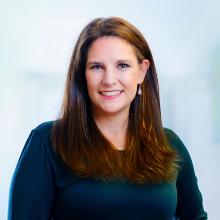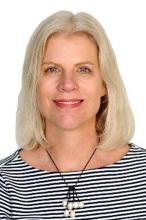The Orphan Drug Act and NORD at their 40th anniversary: Dramatic achievements and ongoing innovation
NORD is born
The creation of NORD was initiated by the same group of advocates who lobbied tirelessly for passage of the ODA – including Ms. Meyers, who served as president of the organization for many years. Heidi Ross, MPH, NORD’s vice president of policy and regulatory affairs, called these advocates “trailblazers.”
NORD was founded in May 1983. The organization included, at that time, 40-50 disease-specific organizations. Today, NORD membership comprises more than 330 patient advocacy groups.
“The goal was to be a voice for those organizations and help get them mobilized, help them get their 501(c)3 [status], help them develop their relationship with the FDA, and similar tasks,” Mr. Saltonstall said. “We continue this important work today as the patient groups play a central role in driving care, research, and policies for their given disease. Also, there’s strength in numbers. We call upon these groups and members to help advocate in Washington for policies that impact the greater rare disease community.”
The ODA launched 4 decades of innovation and change, with NORD strengthening the rare disorder community, which encompasses more than 30 million Americans.
“The organization exists to support people living with rare disorders and tries to improve their quality of life,” according to Katie Kowalski, MPH, NORD’s associate director of education.
Education. The role of Ms. Kowalski’s department is to “educate patients and caregivers, the general public, health care professionals, and students preparing for health care careers about rare conditions,” Ms. Kowalski said. The education department maintains NORD’s Rare Disease Database,6 which contains more than 1,300 reports about rare conditions. Plus, NORD’s Rare Disease Library archives videos about specific diseases and other topics of interest to the rare disease community, including genetic testing and gene therapy.Continuing medical education programs are available for health care providers.
Events. NORD hosts:
An annual Rare Diseases and Orphan Products Breakthrough Summit for various rare disease stakeholders, including global rare disease medical experts, policy makers, regulatory agencies, industry leaders, and patient community members.
An annual patient and family conference; the 2024 edition is scheduled for June 7-8, 2024, in Los Angeles.
Membership support. NORD’s membership department supports any advocacy organization that represents a rare
disorder. “Some [organizations] are more evolved and sophisticated and can do their own educational programming,” Ms. Kowalski said. “Others are fledgling, nascent organizations that may not have the staff or money for salaries. We try to support them, teach them how to budget and raise funds and form a board of directors.”
Advocacy. NORD has a policy department that works at state and federal levels to advocate for policies affecting patients with a rare disease. Mr. Saltonstall shared that NORD was responsible for setting up and helping put together the rare disease office at the National Institutes of Health and the FDA, and continues to foster a close relationship with those offices.8,9 “In fact,” he said, “nothing happens in Washington regarding rare diseases without our being consulted or at the table.”
Focus on the patient. Mr. Saltonstall assumed his role at NORD in 2008. “By then, many fundamental things had been mastered, and we were ready to take things to the next level,” he said. “There were opportunities to leverage the ODA to help patient organizations.”
“We’re one of the only nonprofit advocacy organizations I know of without industry on the board or as members,” Mr. Saltonstall said. “The organization is completely patient focused. Everything we do comes back to committees with patients who make the decisions and management who helps implement those decisions. This makes us unique. The fact that we’re independent makes Congress trust us to be the true voice of patients.”









